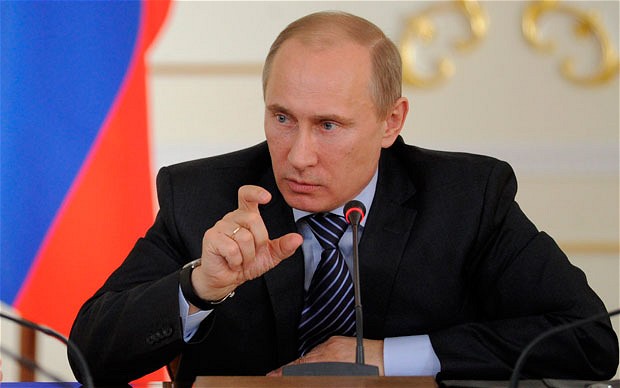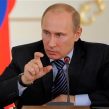
One Year After Declaring His Return to Kremlin, Putin’s Heavy-Handed Rule Alienating Key Constituencies
Publication: Eurasia Daily Monitor Volume: 9 Issue: 173
By:

There is something ambiguous about Vladimir Putin’s third presidential term—as if it has happened by chance or was awarded to him by a reverential electorate with no expectations that he deliver the country to a better future. In fact, it was exactly one year ago that Putin obliged President Dmitry Medvedev to announce the return of the real master of the Russian state to the position of supreme authority, thus admitting that Medvedev’s own pretenses for championing the cause of “modernization” were not serious (Novaya Gazeta, September 21). If Putin expected that this political maneuver would reassure the elites and encourage the “masses” to rejoice, he has had to swallow much disappointment: his approval ratings are sliding, the “white opposition” stubbornly remains mobilized in the streets, and the elites are offended by his attempts to discipline them (Vedomosti, August, 17, 22). Putin has never been good at delegating, but now he claims control over every routine decision as if compelled to demonstrate time and again that Russia is governed not by a reconfigured “tandem” but by a capricious autocrat.
This micro-management does not bode well for the efficiency of often stalled decision-making. Indeed, last week’s high-profile quarrel about the state budget for 2013–2015 was initiated by Putin, who felt excluded. He accused the government of paying insufficient attention to the decrees he signed days after his inauguration in May and issued official reprimands to the three ministers least involved in putting the budget figures together (Nezavisimaya Gazeta, September 21). Medvedev admitted that the economic situation required prudence in spending money and put his aides to work on editing the text and adding references to presidential instructions, but refused to make any substantial changes. He even allowed himself to philosophize that budgets were not made to be liked, daring to add: “When I worked as the president, I also never liked them” (Newsru.com, September 20). A major problem looming over balancing revenues and expenditures is the staggering deficit in the Pension Fund; but Putin is as reluctant to launch a reform of this socially sensitive system as Medvedev is, despite the warning from former Finance Minister Alexei Kudrin that every instance of procrastination adds to this burden (Vedomosti, September 6).
One opportunity opened by Putin’s criticism, which Medvedev did not fail to exploit, was to harvest into the state coffers the dividends accumulated by the state-owned holding company Rosneftegaz, managed by former Deputy Prime Minister Igor Sechin (Kommersant, September 21). Sechin planned to use this money to acquire several energy-generating assets earmarked for privatization. But presently, his attention is focused on the proposition to purchase BP’s share in the conflict-ridden oil company TNK-BP (RBC Daily, September 20). By buying out BP, state-owned Rosneft—of which Sechin is the CEO—would be able to secure a dominant position in the Russian oil business, while state-owned banks would certainly come to the rescue if a need to refinance a new loan for the purchase, estimated at $15 billion, becomes acute. Russian partners in the TNK-BP are not exactly thrilled with the prospect of bowing to Rosneft, and many other energy “giants,” from Gazprom to Gunvor, would love to cut Sechin down to size (Gazeta.ru, September 17). Intrigues of this sort, together with Putin’s heavy-handed attempts to block the probe initiated by the European Commission against Gazprom, distort Russia’s energy policy, which is increasingly centered on profit maximization at the expense of strategic investment (Nezavisimaya Gazeta, September 13).
These shortening horizons influence the behavior of the elites that would much prefer to see a more predictable environment shaped by comprehensible rules rather than by mood swings of the “national leader” who runs state affairs as a perpetual election campaign. Entrepreneurs are not amused with Medvedev’s joke that the government would not be dispatching “doctors” any more (the reference point being Putin’s boorish style of “manual management”). Hence, business owners continue to evacuate their liquid assets from Russia, so that capital flight on the scale of $65 billion annually is seen as “business as usual” (Nezavisimaya Gazeta, September 21; Kommersant, September 22). Bureaucrats, on the other hand, are deeply unhappy about legislation that bans them from owning real estate and keeping bank accounts abroad; they also foresee new rounds of “purges” driven by Putin’s obsession with loyalty (Nezavisimaya Gazeta, September 11). Finally, the “legal” opposition in the State Duma, and even the MPs from the Kremlin-controlled United Russia party, are irked by the swift expulsion from the parliament of Gennady Gudkov, who dared to join the “white opposition” rallies (Novaya Gazeta, Colta.ru, September 17).
Underpinning all these undercurrents is the protest movement that staged another mass rally in Moscow on September 15. Though perhaps less numerous and joyful than opposition party leaders Boris Nemtsov and Sergei Udaltsov hoped for, the rally was still far stronger than the Kremlin expected (Novaya Gazeta, September 20). This staying power is set to be augmented by the round of regional and local elections in mid-October, which are certain to see massive abuse of administrative power, and also by the elections of the Coordination Council of the opposition scheduled for October 20–21, complicated as this process is. The Kremlin has perhaps overcome the panic caused by the wave of street protests last winter and spring, but is still irritated by this ongoing “carnival.” As a result, the government ordered to shut down the work of the US Agency for International Development (USAID) in Russia (Gazeta.ru, 19 September). The self-delusional belief that the “white opposition” is a product of Washington’s machinations is ridiculous, but Putin’s demonstrated readiness to play hardball instead of cultivating new personal networks in Europe and the United States is worrisome (Kommersant, September 20).
During this year of reasserting his supremacy and reassessing the costs of his comeback, Putin has essentially given up on gaining respect from Moscow’s “creative classes,” but he also appears to have lost interest in building Western connections. The opinion of peers used to be quite important for him. Now, however, he is liberated from such concerns—he assumes that the global financial crisis and economic underperformance in the West have sharply diminished the “soft power” of liberal democracies. It is only his own opinion of himself that matters now, and the grander it becomes, the fewer loyal subjects are ready to share it.




